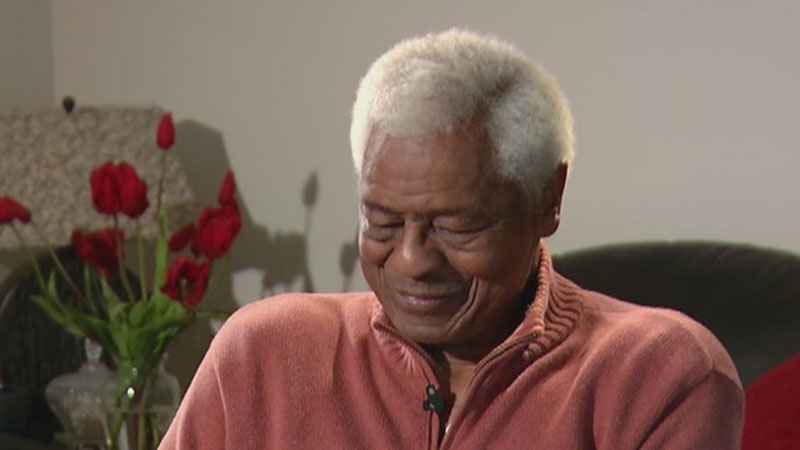Ex-NFL Player, Broadcaster Irv Cross Announces Brain Donation to Help Others Suffering
Football Sundays back in the 1970s all started the same way, as Irv Cross’ deep voice echoed out of the television speakers, when he was reporting from the studio or on the sideline as part of CBS NFL Today’s coverage with Brent Musberger and Phyllis George.
Cross broke new ground back then, becoming the first African-American national sportscaster on television after his playing days in the NFL.
“I never thought about being the first of anything,” Cross said. “I just wanted to do the best job I could.”
After a very public life, Cross opened up during the first and only sit-down interview he plans to do about a new personal health ordeal with 5 EYEWITNESS NEWS at his Roseville home.
“Like so many retired other pro football players, I’ve had some issues with my central nervous system, my brain,” Cross said.

Irv Cross sits down for an interview in 2018. (KSTP/file)
Now at almost age 80, Cross said he has mild cognitive dementia and the treatments aren’t helping.
“I’ve been doing this for two years almost, I can’t get anything,” Cross said.
In a newly published book, “Bearing The Cross,” he talks about the never-ending headaches around the clock.
Cross wrote, “I don’t drive a car anymore because I’m afraid I might not get back home. I lose track of where I am … all it takes is one building being torn down, or something changing on a familiar route and I might as well be on Mars.”
Cross plans after his death to donate his brain through the Concussion Legacy Foundation to research at Boston University’s CTE Center.
“I did it, primarily did it was because I thought it would be a waste to not give it,” Cross said.
Cross understands others are feeling pain while facing this new opponent to tackle with brain issues after concussions and other head injuries from playing days.
He shared a recent conversation he had with an NFL great, not saying his name, nor anything about him, only their chilling conversation.
“He said the only thing he had going for him now was a bullet, I said, ‘What do you mean?'” Cross said. “He said, ‘Well, I don’t want to do it anymore.’”
At that moment, Cross knew he needed to get that former player help to put down the gun.
“I told him, ‘Just take it easy, I can find some help for you,'” Cross said while tears dripped down his cheek. “He’s still around but it was so sad to hear that.”
By donating his brain to research for CTE, the neurodegenerative brain disease only found after death that has symptoms of dementia, impulse control and memory loss, he hopes it will eventually help treat those suffering while still alive.
NFL Playing Days
After playing football while a student-athlete at Northwestern University, Cross went into the NFL in the early 1960s.
Cross delivered bone-crushing hits for the Philadelphia Eagles and later the Los Angeles Rams.
“We had plastic hard shell helmets that we used to split a lot – you have a helmet to helmet collision,” Cross said. “You’d split those darn things, you had problems with your brain bouncing around, everywhere in your skull.”
Cross said he’d often be tasked with trying to stop the biggest threat on the opposing sideline, including the great running back Jim Brown.
“You know before it happens what’s going to happen, you commit yourself to it, that’s the way the game is played, you hoped after the collision is over you get up,” Cross said. “If you could walk, you’d play.”
Minnesota Moments After the Game
After stepping out of the broadcast booth, Cross left a mark on collegiate programs as athletic director at Macalester College and civic programs, including as executive director of Big Brothers, Big Sisters of Central Minnesota.
“I was raised that you give yourself to your community, you do what you can to help others. Probably when you come from a family of 15 you’re always doing that,” Cross said.
After his mother died at a young age, Cross helped his single father raise the younger children, all before he went off to college.